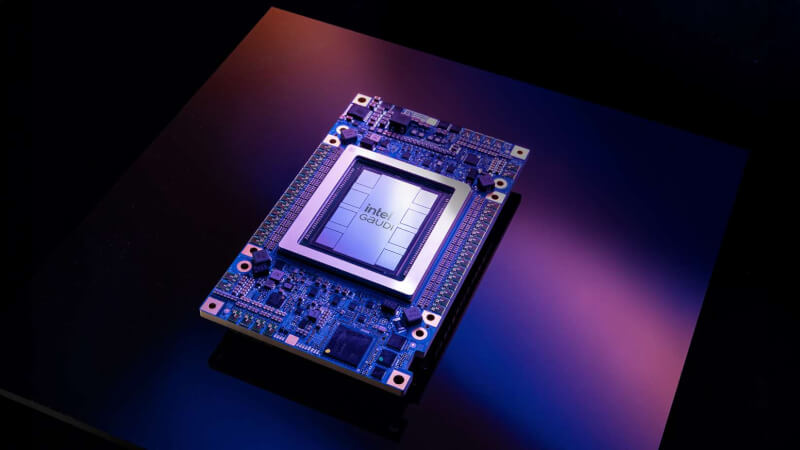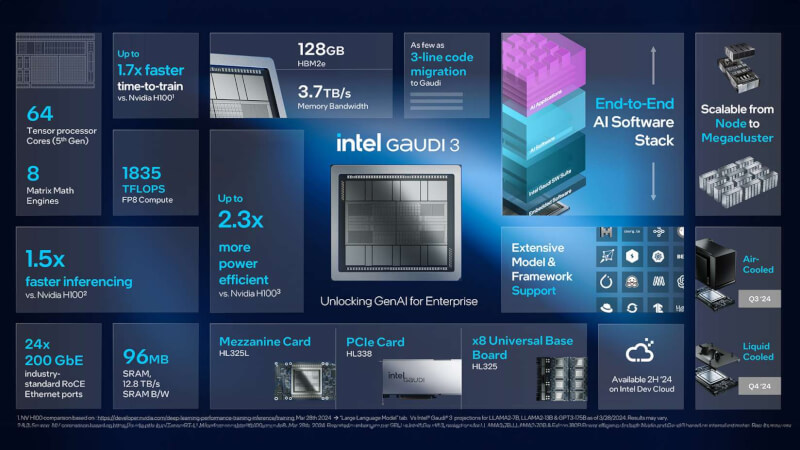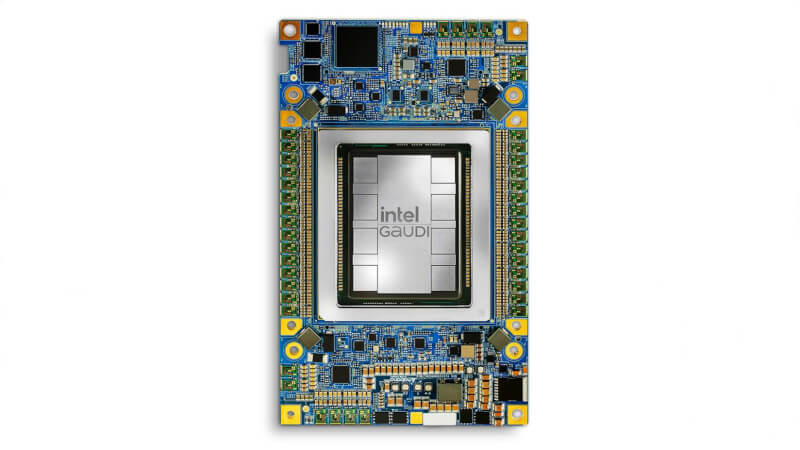Intel chases Nvidia with new AI chips

Intel is rolling out a new version of its AI chip in an attempt to challenge Nvidia in one of the fastest growing parts of the AI industry. The processor update, called Gaudi 3, will be widely available in the third quarter, Intel said at a company event. The chip is designed to improve performance in two key areas: helping train AI systems - a process that involves bombarding them with data and running the finished software.
The growing demand for AI services has sent tech companies scrambling for these so-called accelerator chips, but Nvidia has benefited the most. Earlier versions of Gaudi failed to gain the market share Intel had hoped for, CEO Pat Gelsinger has said. He expects the new model to have a greater impact.

"They're a good competitor, but people want an alternative," he said Tuesday of Nvidia. "The world needs more suppliers and we are very dedicated to providing that choice."
Intel shares closed up less than 1 percent at $38 on Tuesday, reversing an earlier decline. They had been down 24 percent this year until Monday's close.
Gelsinger did not want to give prices, but said his chips will be "well below" the cost of Nvidia's current and future chips. They will provide an "extremely good" total cost of ownership, he said.
Challenging Nvidia won't be easy. The unexpected success of the company's H100 accelerator helped more than double revenue and send its market capitalization over $2 trillion. And now Nvidia aims to build on its lead with a just-announced chip platform called Blackwell. Systems based on that product will be available later this year, the company said in March.

According to Intel's assessment, Gaudi 3 will be faster and more energy efficient than H100. It will train certain types of AI models 1.7 times faster and be 1.5 times better at running the software, the chipmaker claims. The product will be about as good as Nvidia's newer H200, Intel said, which does slightly better in some areas and slightly worse in others.
Intel said it cannot provide comparisons with Nvidia's upcoming Blackwell series until those products are publicly available. Intel's rival Advanced Micro Devices (AMD), its longtime competitor in personal computer processors, is also pushing into the field. It unveiled an accelerator lineup called the MI300 in December.
Intel's Gelsinger has said he's not just trying to catch up with Nvidia. He expects AI to bring a bigger economic revenue boom to the industry, especially as the technology spreads beyond its current concentration in the data centers of companies like Microsoft and Alphabet's Google. Personal computers, mobile phones and network equipment will require chips capable of handling AI tasks and providing users with instant feedback, something not always possible with remote server farms.

When Intel announced its fourth-quarter results in late January, Gelsinger said it was increasing supply of Gaudi to meet rising demand and that the company has a 2024 "pipeline" of "over $2 billion and growing." The broader market for enterprise spending on generative AI equipment will rise from $40 billion in 2024 to $151 billion in 2027, Intel said, citing market research.
But that just underlines how much of a lead Nvidia has. The company had data center revenue of more than $47 billion in the 12 months ending in January. In its current fiscal year, the total will exceed $95 billion, according to analyst estimates.
Latest processor - cpu
-
31 Octprocessor - cpu
-
16 Sepprocessor - cpu
AMD Ryzen AI 7 PRO 360 spotted
-
04 Sepprocessor - cpu
Intel scores big AI chip customer
-
04 Sepprocessor - cpu
Exclusively-Intel manufacturing store drawers
-
29 Augprocessor - cpu
Big performance boost for Ryzen CPUs
-
28 Augprocessor - cpu
Intel shares could fall in battle with TSMC and NV
-
28 Augprocessor - cpu
AMD is claimed to have been hacked
-
27 Augprocessor - cpu
Intel presents Lunar Lake, Xeon 6, Guadi 3 chips
Most read processor - cpu
Latest processor - cpu
-
31 Octprocessor - cpu
AMD will launch the Ryzen 7 9800X3D on November 7
-
16 Sepprocessor - cpu
AMD Ryzen AI 7 PRO 360 spotted
-
04 Sepprocessor - cpu
Intel scores big AI chip customer
-
04 Sepprocessor - cpu
Exclusively-Intel manufacturing store drawers
-
29 Augprocessor - cpu
Big performance boost for Ryzen CPUs
-
28 Augprocessor - cpu
Intel shares could fall in battle with TSMC and NV
-
28 Augprocessor - cpu
AMD is claimed to have been hacked
-
27 Augprocessor - cpu
Intel presents Lunar Lake, Xeon 6, Guadi 3 chips






